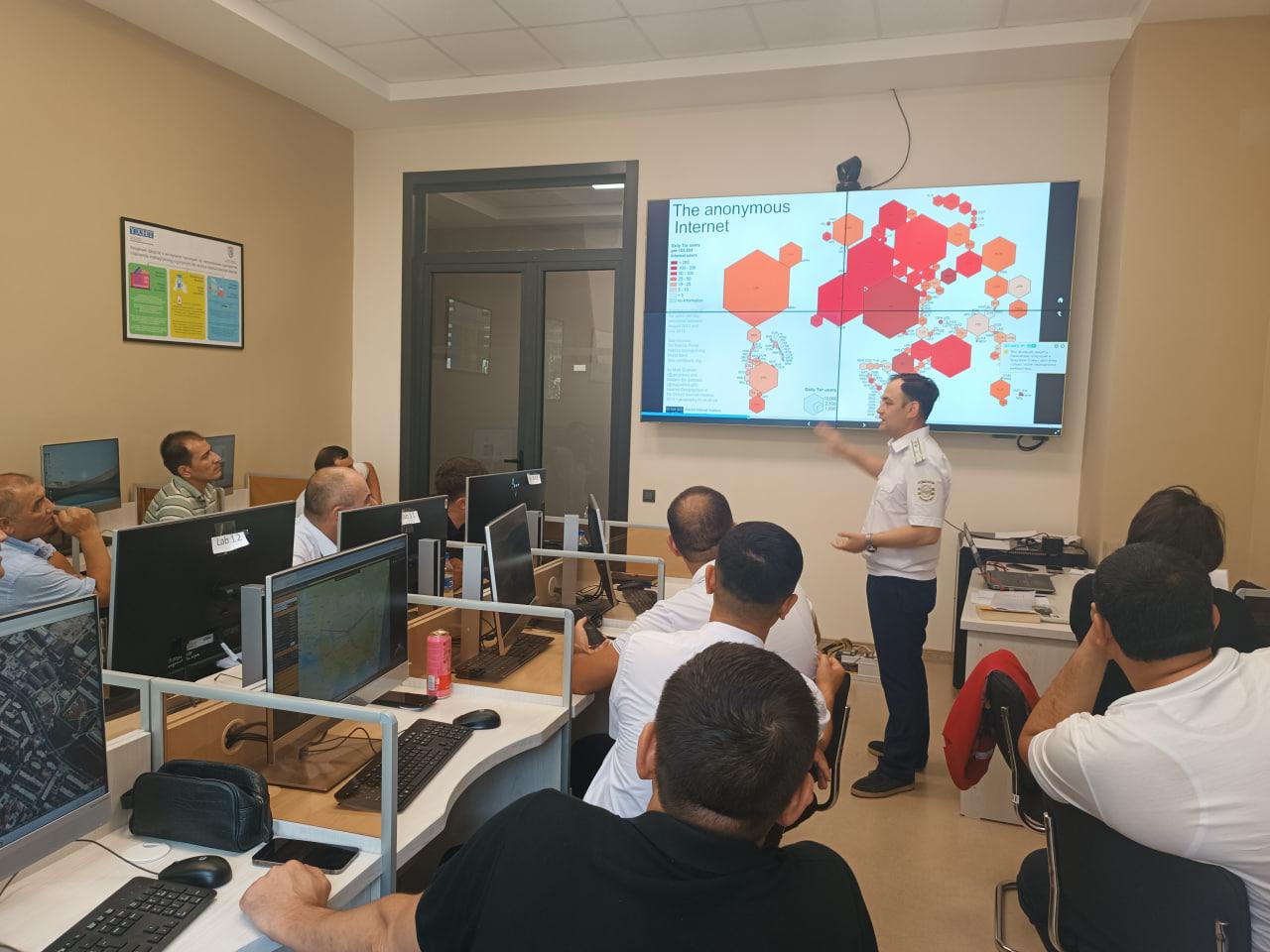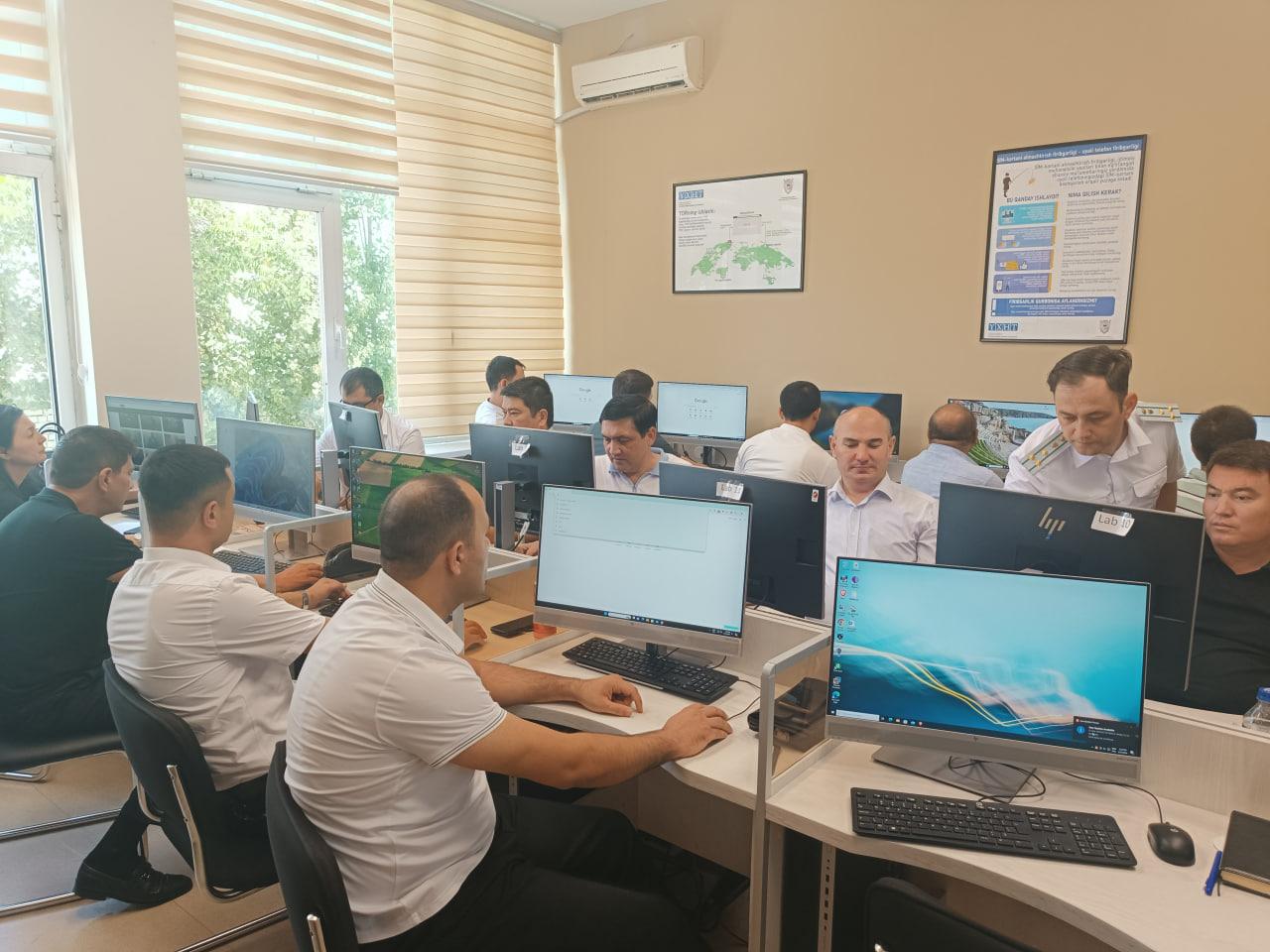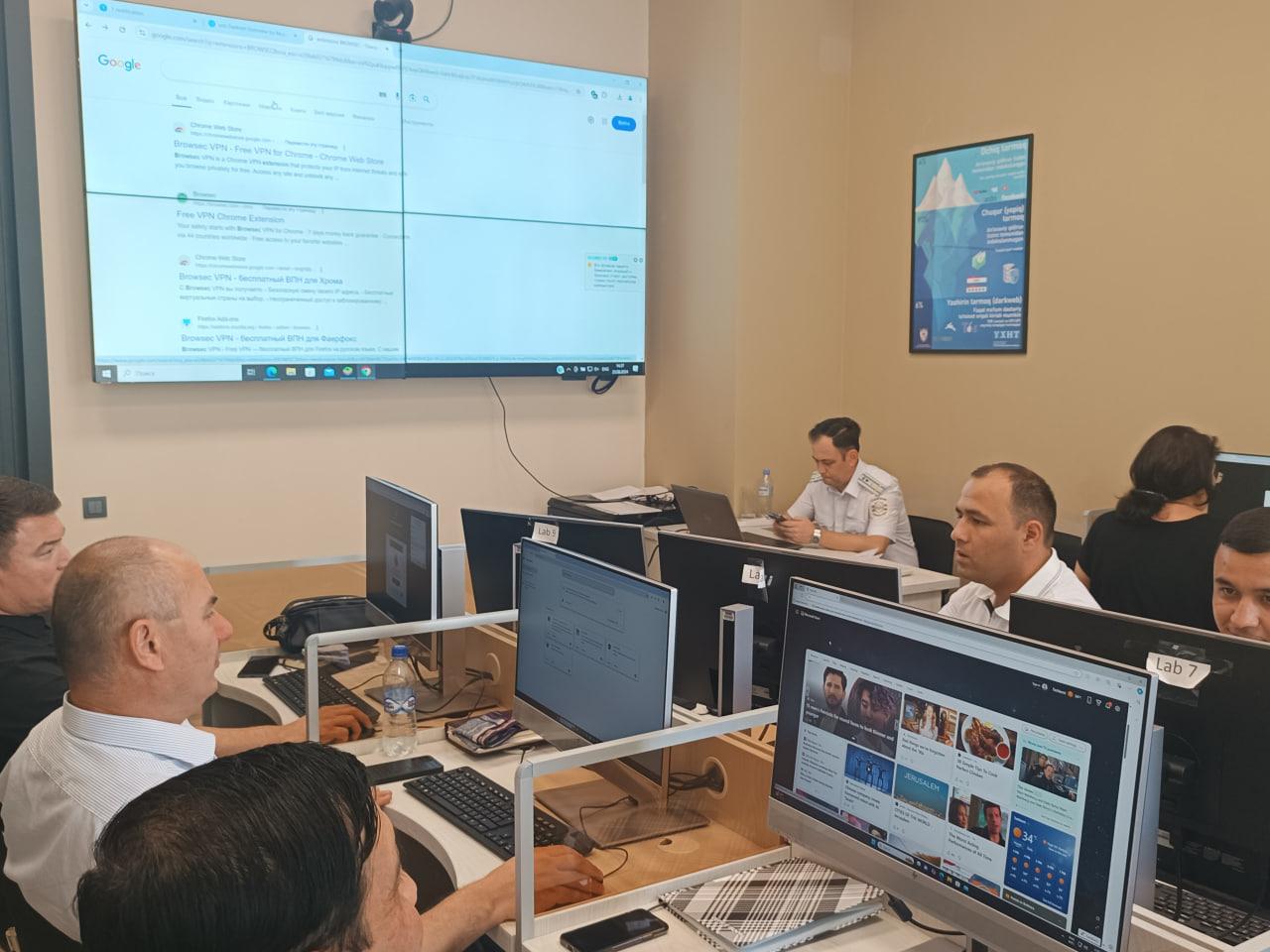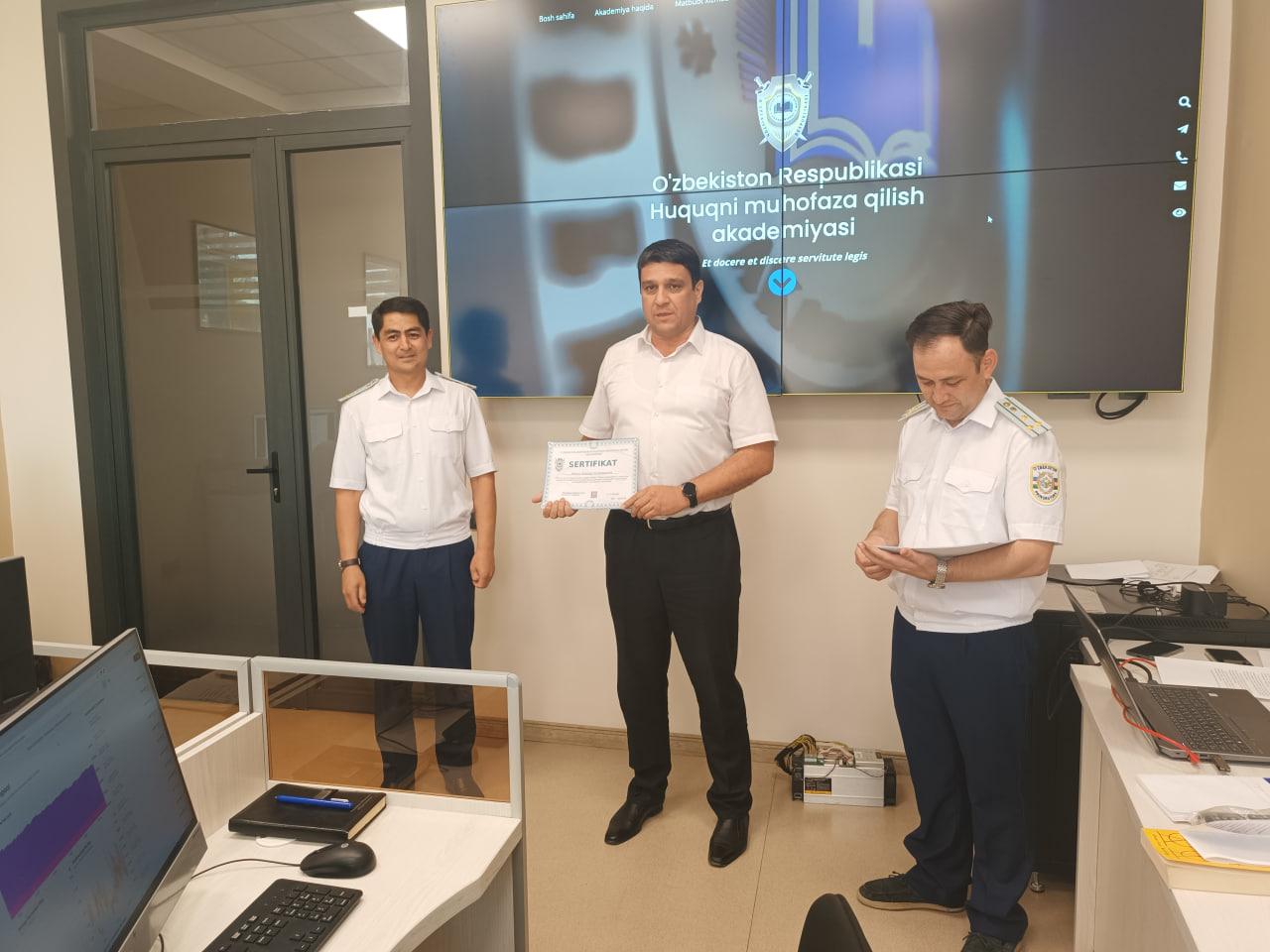Training on the Application of Digital Forensics Methods in Investigative Activities
A training session on "The Use of Modern Digital Forensics Methods in Conducting Investigative Actions" was organized at the Law Enforcement Academy of the Republic of Uzbekistan for investigators from the Bureau of Forced Execution under the Prosecutor General's Office, the National Guard, and the Customs Committee.
The three-day training program aimed to enhance the knowledge and skills of law enforcement investigators on topics such as the basic concepts and directions of digital forensics, forensic methods for capturing digital evidence, creating copies and hashing digital information carriers, network forensics, and mobile device forensics (Mobile Forensics).
The training covered detailed discussions on identifying and collecting information relevant to the investigation from open sources (OSINT), sending requests for procedural actions to be conducted in a foreign country, and retrieving and obtaining information from social networks and messengers (Facebook, WhatsApp, Instagram, Telegram).
Qualified experts conducted theoretical and practical sessions on viewing, recovering, and analyzing digital data stored in mobile devices using the "Mobile Forensic Expert Plus" software, the types and features of blockchain, operations with crypto-assets and their mining, identifying and retrieving data stored in cloud storage, and exploring the hidden segment of the internet (Darknet).
During the event, participants were introduced to aspects and methods for searching for work-related digital data (images, videos, etc.) from open sources, as well as tools for chronolocation and geospatial search (Google Map, Yandex Map, Google Earth Pro).
Additionally, explanations were provided on verifying the integrity of digital data or files, creating, distributing, and modifying objects through metadata, and determining the geodata associated with them.
As part of the practical sessions, participants developed skills in using specialized software to extract, verify, and recover data from mobile devices.
The sessions also discussed issues such as the features of crypto-assets and crypto-wallets, as well as the procedures for seizing crypto-assets, including the analysis of the distributed ledger (blockchain) and special considerations when tracking the flow of crypto-assets using specialized search systems.
At the conclusion of the event, recommendations were given on the use of the acquired knowledge, and participants were awarded certificates.
ects and methods for searching for work-related digital data (images, videos, etc.) from open sources, as well as tools for chronolocation and geospatial search (Google Map, Yandex Map, Google Earth Pro).
Additionally, explanations were provided on verifying the integrity of digital data or files, creating, distributing, and modifying objects through metadata, and determining the geodata associated with them.
As part of the practical sessions, participants developed skills in using specialized software to extract, verify, and recover data from mobile devices.
The sessions also discussed issues such as the features of crypto-assets and crypto-wallets, as well as the procedures for seizing crypto-assets, including the analysis of the distributed ledger (blockchain) and special considerations when tracking the flow of crypto-assets using specialized search systems.
At the conclusion of the event, recommendations were given on the use of the acquired knowledge, and participants were awarded certificates.




